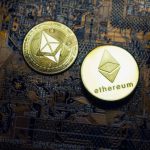In a recent keynote speech at the Ai4 2024 conference in Las Vegas, Cardano’s founder, Charles Hoskinson, dived into the integration challenges between blockchain and AI. Romain Pellerin, CTO at Input Output, condensed the key highlights from Hoskinson’s address.
Cardano’s Vision for Integrating AI and Blockchain
According to Hoskinson, blockchain could reshape AI by establishing a decentralized marketplace for data, models, and inference. This setup would serve as a crucial layer for incentives and trust. Hoskinson highlighted blockchain’s potential role in fueling AI advancements.

Reflecting on blockchain’s progression from its initial stages to more advanced iterations, Hoskinson recognized the complex obstacles and potential solutions, especially in a diverse global landscape.
The speech also delved into governance challenges inherent in decentralized technologies like blockchain and AI, stressing the need for innovative governance frameworks that balance decentralization with effective control and reliability.
Hoskinson highlighted the common hurdles faced by both blockchain and AI, emphasizing the importance of governance models that enable decentralization while ensuring secure and efficient management processes. He also proposed tokenization and incentives as potential remedies for managing vast data sets and computational requirements in AI.
Data privacy concerns in AI were another focal point, with Hoskinson advocating for sophisticated tools like fully homomorphic encryption to safeguard privacy during data processing, potentially enabling secure data exchanges and private smart contracts.
The speech underscored the regulatory and ethical dilemmas confronting blockchain and AI, stressing the significance of ethical and legal frameworks to guide responsible technology development and deployment.
Practical applications of blockchain in AI landscapes, such as royalty management and identity verification systems, were discussed as arenas where blockchain could facilitate intricate computations and introduce novel functionalities despite facing challenges due to technical disparities and the first-mover hurdle.
In wrapping up Hoskinson’s insights, Pellerin emphasized the need to address technical and philosophical obstacles when merging blockchain and AI, highlighting the potential for innovative solutions to emerge from aligning incentives and careful coordination between these powerful technologies.
ADA was trading at $0.3382 at the time of reporting.





